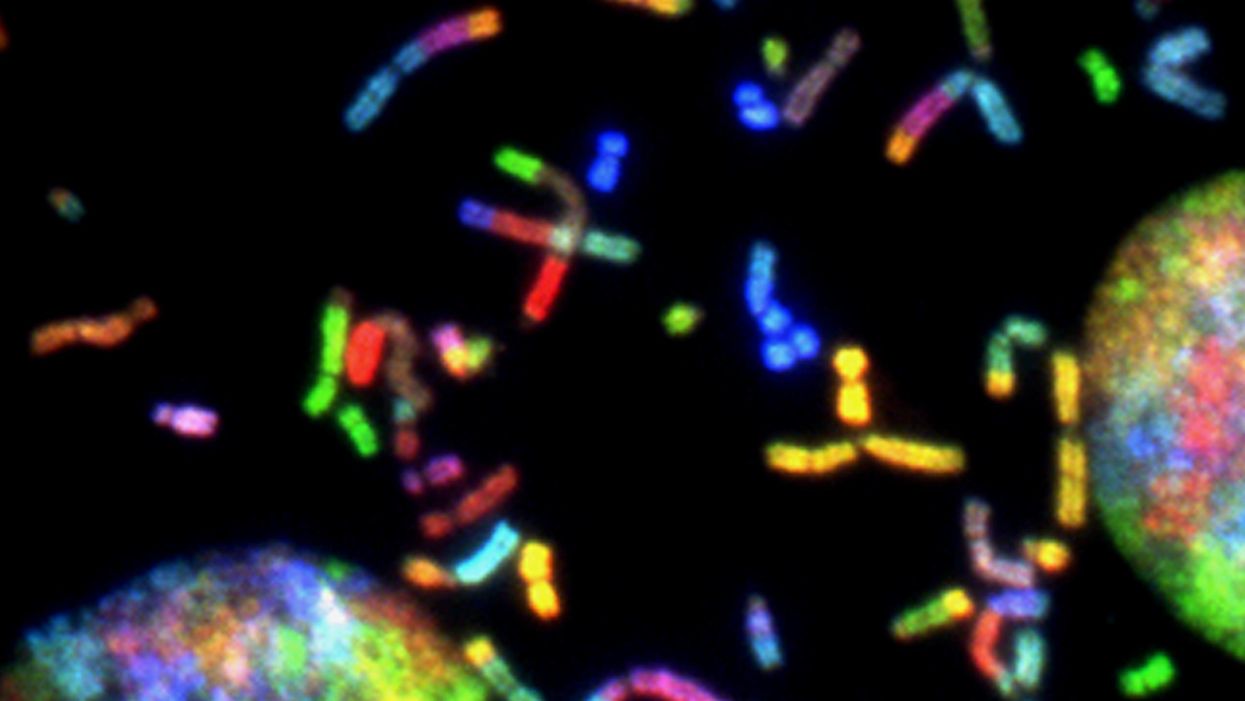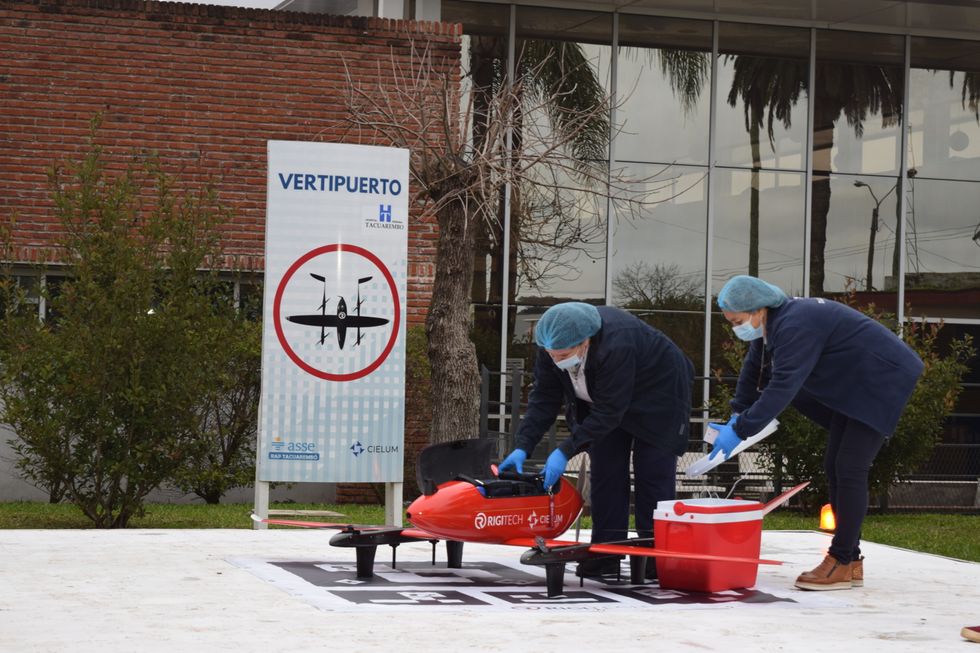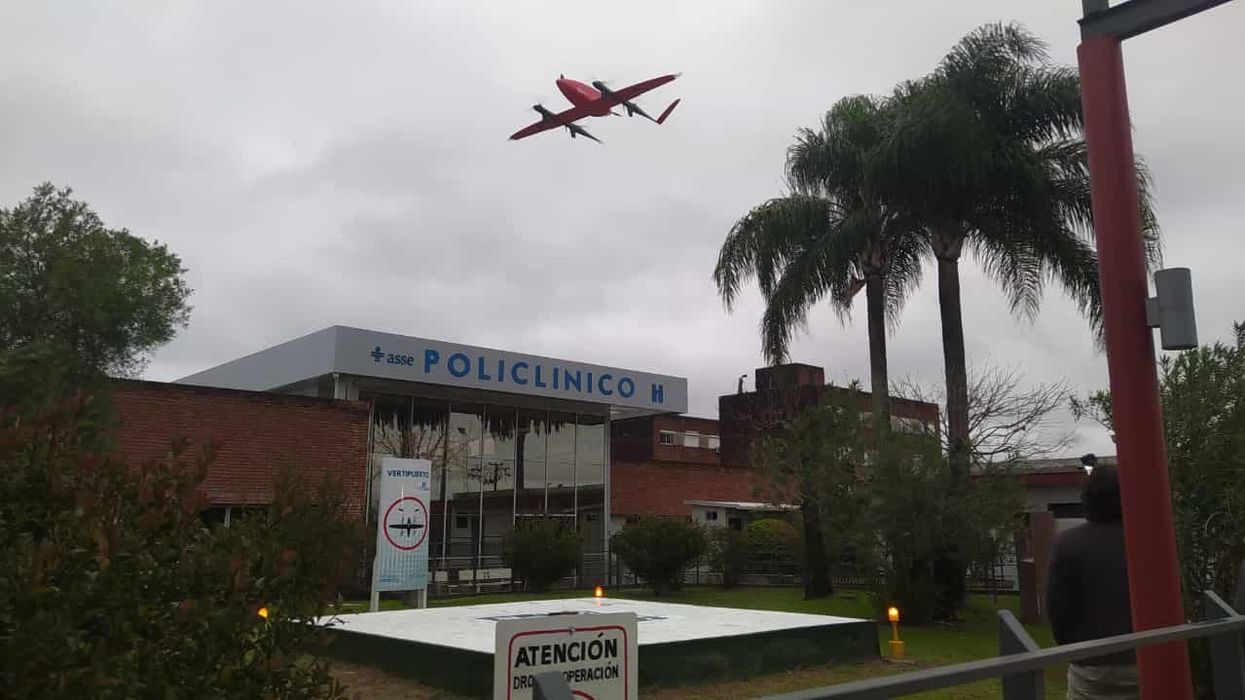Can a non-invasive magnetic helmet treat brain cancer?

Glioblastoma is an aggressive and deadly brain cancer, causing more than 10,000 deaths in the US per year. In the last 30 years there has only been limited improvement in the survival rate despite advances in radiation therapy and chemotherapy. Today the typical survival rate is just 14 months and that extra time is spent suffering from the adverse and often brutal effects of radiation and chemotherapy.
Scientists are trying to design more effective treatments for glioblastoma with fewer side effects, and a team at the Department of Neurosurgery at Houston Methodist Hospital has created a magnetic helmet-based treatment called oncomagnetic therapy: a promising non-invasive treatment for shrinking cancerous tumors. In the first patient tried, the device was able to reduce the tumor of a glioblastoma patient by 31%. The researchers caution, however, that much more research is needed to determine its safety and effectiveness.
How It Works
“The whole idea originally came from a conversation I had with General Norman Schwarzkopf, a supposedly brilliant military strategist,” says David Baskin, professor of neurosurgery and leader of the effort at Houston Methodist. “I asked him what is the secret to your success and he said, ‘Energy. Take out the power grid and the enemy can't communicate.’ So I thought about what supplies [energy to] cancer, especially brain cancer.”
Baskin came up with the idea of targeting the mitochondria, which process and produce energy for cancer cells.
"This is the most exciting thing in glioblastoma treatment I've seen since I've been a neurosurgeon, but it is very preliminary,” Baskin says.
The magnetic helmet creates a powerful oscillating magnetic field. At a set range of frequencies and timings, it disrupts the flow of electrons in the mitochondria of cancer cells. This leads to a release of certain chemicals called Reactive Oxygen Species, or ROS. In normal cells, this excess ROS is much lower, and it's neutralized by other chemicals called antioxidants.
However, cancer cells already have more ROS: they grow rapidly and uncontrollably, so their mitochondria need to produce more energy which in turn generates more ROS. By using the powerful magnetic field, levels of ROS get so high that the malignant cells are torn apart.
The biggest challenge was working out the specific range of frequencies and timing parameters they needed to use to kill cancer cells. It took skill, intuition, luck and lots of experiments. The helmet could theoretically be used to treat all types of glioblastoma.
Developing the magnetic helmet was a collaborative process. Santosh Helekar is a neuroscientist at Houston Methodist Research Institute and the director of oncomagnetics (magnetic cancer therapies) at the Peak Center in Houston Methodist Hospital. His previous invention with colleagues gave the team a starting point to build on. “About 7 years back I developed a portable brain magnetic stimulation device to conduct brain research,” Helekar says. “We [then] conducted a pilot clinical trial in stroke patients. The results were promising.”
Helekar presented his findings to neurosurgeons including Baskin. They decided to collaborate. With a team of scientists behind them, they modified the device to kill cancer cells.

The magnetic helmet studied for treatment of glioblastoma
Dr. David Baskin
Initial Results
After success in the lab, the team got FDA approval to conduct a compassionate trial in a 53-year-old man with end-stage glioblastoma. He had tried every other treatment available. But within 30 days of using the magnetic helmet his tumor shrank by 31%.
Sadly, 36 days into the treatment, the patient had an unrelated head injury due to a fall. The treatment was paused and he later died of the injury. Autopsy results of his brain highlighted the dramatic reduction in tumor cells.
Baskin says, “This is the most exciting thing in glioblastoma treatment I've seen since I've been a neurosurgeon, but it is very preliminary.”
The helmet is part of a growing number of non-invasive cancer treatments. One device that is currently being used by glioblastoma patients is Optune. It uses electric fields called tumor treating fields to slow down cell division and has been through a successful phase 3 clinical trial.
The magnetic helmet has the promise to be another useful non-invasive treatment according to Professor Gabriel Zada, a neurosurgeon and director of the USC Brain Tumor Center. “We're learning that various electromagnetic fields and tumor treating fields appear to play a role in glioblastoma. So there is some precedent for this though the tumor treating fields work a little differently. I think there is major potential for it to be effective but of course it will require some trials.”
Professor Jonathan Sherman, a neurosurgeon and director of neuro-oncology at West Virginia University, reiterates the need for further testing. “It sounds interesting but it’s too early to tell what kind of long-term efficacy you get. We do not have enough data. Also if you’re disrupting [the magnetic field] you could negatively impact a patient. You could be affecting the normal conduction of electromagnetic activity in the brain.”
The team is currently extending their research. They are now testing the treatment in two other patients with end-stage glioblastoma. The immediate challenge is getting FDA approval for those at an earlier stage of the disease who are more likely to benefit.
The Future
Baskin and the team are designing a clinical trial in the U.S., .U.K. and Germany. After positive results in cell cultures, they’re in negotiations to collaborate with other researchers in using the technology for lung and breast cancer. With breast cancer, the soft tissue is easier to access so a magnetic device could be worn over the breast.
“My hope is to develop a treatment to treat and hopefully cure glioblastoma without radiation or chemotherapy,” Baskin says. “We're onto a strategy that could make a huge difference for patients with this disease and probably for patients with many other forms of cancer.”
This article first appeared on Leaps.org on January 21, 2022.
In this week's Friday Five, breathing this way may cut down on anxiety, a fasting regimen that could make you sick, this type of job makes men more virile, 3D printed hearts could save your life, and the role of metformin in preventing dementia.
The Friday Five covers five stories in research that you may have missed this week. There are plenty of controversies and troubling ethical issues in science – and we get into many of them in our online magazine – but this news roundup focuses on scientific creativity and progress to give you a therapeutic dose of inspiration headed into the weekend.
Here are the promising studies covered in this week's Friday Five, featuring interviews with Dr. David Spiegel, associate chair of psychiatry and behavioral sciences at Stanford, and Dr. Filip Swirski, professor of medicine and cardiology at the Icahn School of Medicine at Mount Sinai.
Listen on Apple | Listen on Spotify | Listen on Stitcher | Listen on Amazon | Listen on Google
Here are the promising studies covered in this week's Friday Five, featuring interviews with Dr. David Spiegel, associate chair of psychiatry and behavioral sciences at Stanford, and Dr. Filip Swirski, professor of medicine and cardiology at the Icahn School of Medicine at Mount Sinai.
- Breathing this way cuts down on anxiety*
- Could your fasting regimen make you sick?
- This type of job makes men more virile
- 3D printed hearts could save your life
- Yet another potential benefit of metformin
* This video with Dr. Andrew Huberman of Stanford shows exactly how to do the breathing practice.
This podcast originally aired on March 3, 2023.
Breakthrough drones deliver breast milk in rural Uruguay
A drone hovers over Tacuarembó hospital in Uruguay, carrying its precious cargo: breast milk intended for children in remote parts of the country.
Until three months ago, nurse Leopoldina Castelli used to send bottles of breast milk to nourish babies in the remote areas of Tacuarembó, in northern Uruguay, by way of ambulances or military trucks. That is, if the vehicles were available and the roads were passable, which wasn’t always the case. Now, five days per week, she stands by a runway at the hospital, located in Tacuarembó’s capital, watching a drone take off and disappear from view, carrying the milk to clinics that serve the babies’ families.
The drones can fly as far as 62 miles. Long distances and rough roads are no obstacles. The babies, whose mothers struggle to produce sufficient milk and cannot afford formula, now receive ample supplies for healthy growth. “Today we provided nourishment to a significantly larger number of children, and this is something that deeply moves me,” Castelli says.
About two decades ago, the Tacuarembó hospital established its own milk bank, supported by donations from mothers across Tacuarembó. Over the years, the bank has provided milk to infants immediately after birth. It's helped drive a “significant and sustained” decrease in infant mortality, says the hospital director, Ciro Ferreira.
But these children need breast milk throughout their first six months, if not longer, to prevent malnutrition and other illnesses that are prevalent in rural Tacuarembó. Ground transport isn't quick or reliable enough to meet this goal. It can take several hours, during which the milk may spoil due to a lack of refrigeration.
The battery-powered drones have been the difference-maker. The project to develop them, financed by the UNICEF Innovation Fund, is the first of its kind in Latin America. To Castelli, it's nothing short of a revolution. Tacuarembó Hospital, along with three rural clinics in the most impoverished part of Uruguay, are its leaders.
"This marks the first occasion when the public health system has been directly impacted [by our technology]," says Sebastián Macías, the CEO and co-founder of Cielum, an engineer at the University Republic, which collaborated on the technology with a Uruguayan company called Cielum and a Swiss company, Rigitech.
The drone can achieve a top speed of up to 68 miles per hour, is capable of flying in light rain, and can withstand winds of up to 30 miles per hour at a maximum altitude of 120 meters.
"We have succeeded in embracing the mothers from rural areas who were previously slipping through the cracks of the system," says Ferreira, the hospital director. He envisions an expansion of the service so it can improve health for children in other rural areas.

Nurses load the drone for breast milk delivery.
Sebastián Macías - Cielum
The star aircraft
The drone, which costs approximately $70,000, was specifically designed for the transportation of biological materials. Constructed from carbon fiber, it's three meters wide, two meters long and weighs 42 pounds when fully loaded. Additionally, it is equipped with a ballistic parachute to ensure a safe descent in case the technology fails in midair. Furthermore, it can achieve a top speed of 68 miles per hour, fly in light rain, and withstand winds of 30 miles per hour at a height of 120 meters.
Inside, the drones feature three refrigerated compartments that maintain a stable temperature and adhere to the United Nations’ standards for transporting perishable products. These compartments accommodate four gallons or 6.5 pounds of cargo. According to Macías, that's more than sufficient to carry a week’s worth of milk for one infant on just two flights, or 3.3 pounds of blood samples collected in a rural clinic.
“From an energy perspective, it serves as an efficient mode of transportation and helps reduce the carbon emissions associated with using an ambulance,” said Macías. Plus, the ambulance can remain available in the town.
Macías, who has led software development for the drone, and three other technicians have been trained to operate it. They ensure that the drone stays on course, monitor weather conditions and implement emergency changes when needed. The software displays the in-flight positions of the drones in relation to other aircraft. All agricultural planes in the region receive notification about the drone's flight path, departure and arrival times, and current location.
The future: doubling the drone's reach
Forty-five days after its inaugural flight, the drone is now making five flights per week. It serves two routes: 34 miles to Curtina and 31 miles to Tambores. The drone reaches Curtina in 50 minutes while ambulances take double that time, partly due to the subpar road conditions. Pueblo Ansina, located 40 miles from the state capital, will soon be introduced as the third destination.
Overall, the drone’s schedule is expected to become much busier, with plans to accomplish 20 weekly flights by the end of October and over 30 in 2024. Given the drone’s speed, Macías is contemplating using it to transport cancer medications as well.
“When it comes to using drones to save lives, for us, the sky is not the limit," says Ciro Ferreira, Tacuarembó hospital director.
In future trips to clinics in San Gregorio de Polanco and Caraguatá, the drone will be pushed to the limit. At these locations, a battery change will be necessary, but it's worth it. The route will cover up to 10 rural Tacuarembó clinics plus one hospital outside Tacuarembó, in Rivera, close to the border with Brazil. Currently, because of a shortage of ambulances, the delivery of pasteurized breast milk to Rivera only occurs every 15 days.
“The expansion to Rivera will include 100,000 more inhabitants, doubling the healthcare reach,” said Ferreira, the director of the Tacuarembó Hospital. In itself, Ferreira's hospital serves the medical needs of 500,000 people as one of the largest in Uruguay's interior.
Alejandro Del Estal, an aeronautical engineer at Rigitech, traveled from Europe to Tacuarembó to oversee the construction of the vertiports – the defined areas that can support drones’ take-off and landing – and the first flights. He pointed out that once the flight network between hospitals and rural polyclinics is complete in Uruguay, it will rank among the five most extensive drone routes in the world for any activity, including healthcare and commercial uses.
Cielum is already working on the long-term sustainability of the project. The aim is to have more drones operating in other rural regions in the western and northern parts of the country. The company has received inquiries from Argentina and Colombia, but, as Macías pointed out, they are exercising caution when making commitments. Expansion will depend on the development of each country’s regulations for airspace use.
For Ferreira, the advantages in Uruguay are evident: "This approach enables us to bridge the geographical gap, enhance healthcare accessibility, and reduce the time required for diagnosing and treating rural inhabitants, all without the necessity of them traveling to the hospital,” he says. "When it comes to using drones to save lives, for us, the sky is not the limit."

